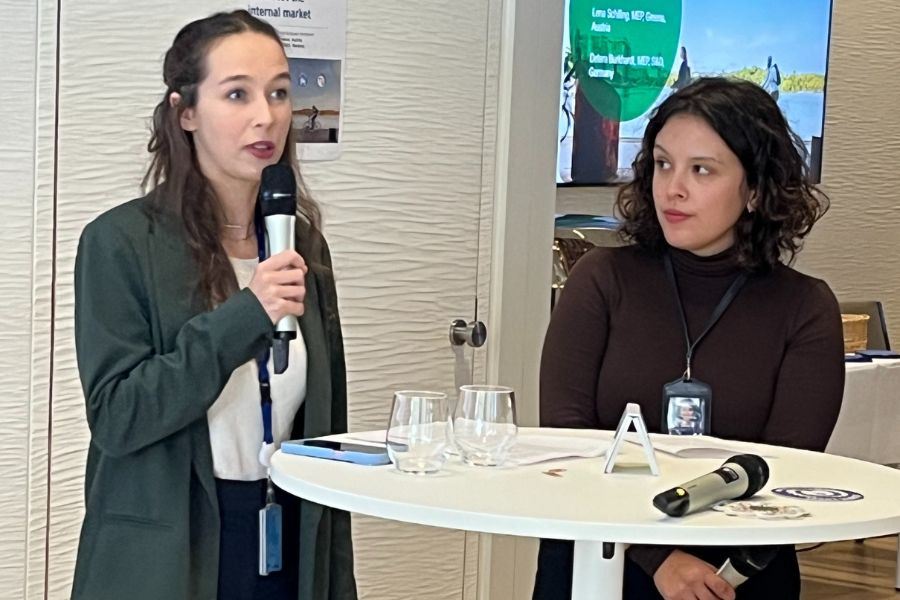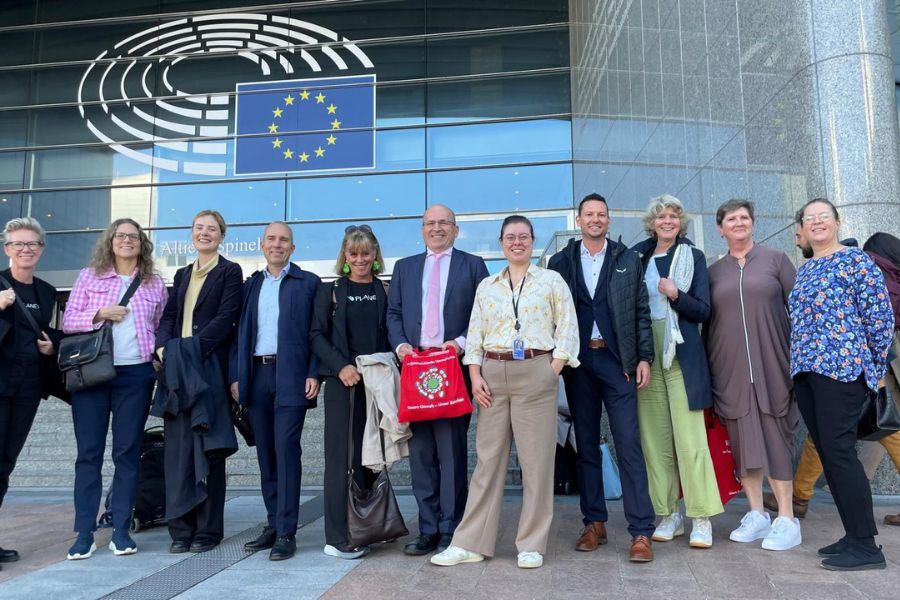Full speed ahead for the green transition with ecolabelling
The EU's official ecolabels were present in the European Parliament ahead of World Ecolabel Day 2024. The aim was to highlight the role of ecolabels in the green transition. There is an urgent need to achieve environmental goals, and ecolabelling is an effective tool to increase the speed.
The seminar "How ecolabels can help reach the EU's environmental goals and boost the internal market" attracted visitors from various political groups, officials and interest organisations in Brussels.
The two MEPs Lena Schilling, (Group of the Green) Austria and Delara Burkhardt (Group of Socialists and Democrats) Germany were the hosts of the day.
– We are in a triple crisis: the climate, the loss of biodiversity and the pollution of environmental toxins. We must change our production and our consumption patterns. In a world full of greenwashing, it is important to have official ecolabels. We need trustworthy and independently audited labels, Lena Schilling began.

Procurement must become more sustainable
There is enormous potential for contributing to environmental and climate goals through sustainable public procurement. Public procurement accounts for 14% of the EU's GDP. But there are not enough effective environmental requirements. Therefore, it was particularly gratifying that the President of the Commission, Ursula von der Leyen, has proposed a revision of the Public Procurement Directive.
– The Public Procurement Directive, which sets the framework for all public procurement throughout the EU, must be clarified so that it becomes easier to set requirements for labelling. Today, there is a "green public procurement gap" between the environmental goals that the EU wants to achieve, and the environmental requirements set in procurement. This is despite the fact that there are many companies at the forefront that can contribute to a competitive range of environmentally more sustainable goods and services, said Anna Linusson, CEO of Ecolabelling Sweden.
Jean-Yves Muylle, Head of Public Procurement at the Commission, DG Grow, outlined the robust revision process involving seven different pieces of legislation, 476 legal provisions, and 39 sector-specific acts (!). An expert group with various stakeholders will contribute to the evaluation, which includes the environmental aspect, and the basis for the evaluation will also be sent out for consultation at the end of 2024.
A firm stance against greenwashing
Another current legislation that will stop greenwashing is the upcoming directive on Green Claims. Emmanuelle Maire, Head of the Division for Circular Economy, Sustainable Consumption and Production at the European Commission, DG ENVI, mentioned, among other things, that the directive will be negotiated at the beginning of 2025, and it will take two years before the law comes into effect in the member states.
– The Green Claims Directive is a historic legislative proposal that could help stop greenwashing. Consumers are familiar with and trust Type 1 ecolabels, which is why it is positive that they hold a strong position in the proposal. However, the Type 1 ecolabels should be pre-approved to better align with the Empowering Consumers Directive, says Riikka Holopainen, CEO of Ecolabelling Finland.
The company's perspective on the importance of ecolabelling in the market was provided by Benjamin Göllner from the Austrian company Hollu Systemhygiene. Ulrika Palm from the Swedish Association of Local Authorities and Regions (SALAR) gave an outlook from the perspective of the procuring organisations.

What the ecolabels think about Green Claims
- Very positive proposal, but all officially recognised Type 1 ecolabels should be exempted from control as it would not add any extra value to neither the environment nor the people. The current proposal means that the ecolabelling organisation will be controlled on overall methodology and governance.
- It is positive that licence holders are exempt from double checking of environmental claims, an ecolabelling licence is sufficient.
- It should be aligned with the Empowering Consumers Directive in the green transition, which classifies Type 1 ecolabelling as representing excellent environmental performance. This directive addresses general environmental claims and focuses on what companies are not allowed to claim, such as “climate neutral” or “environmentally friendly”. The Green Claims Directive, on the other hand, targets more specific environmental claims and focuses on how they should be proven.
What the ecolabels think of the Public Procurement Directive
The use of officially recognised ISO 14024 Type 1 ecolabels should be facilitated in public procurement by explicitly including these ecolabels without additional restrictions.
To achieve environmental goals, the rules must be easy to follow. An example of the opposite is Article 43 1 (a), relating to the subject matter of the contract.